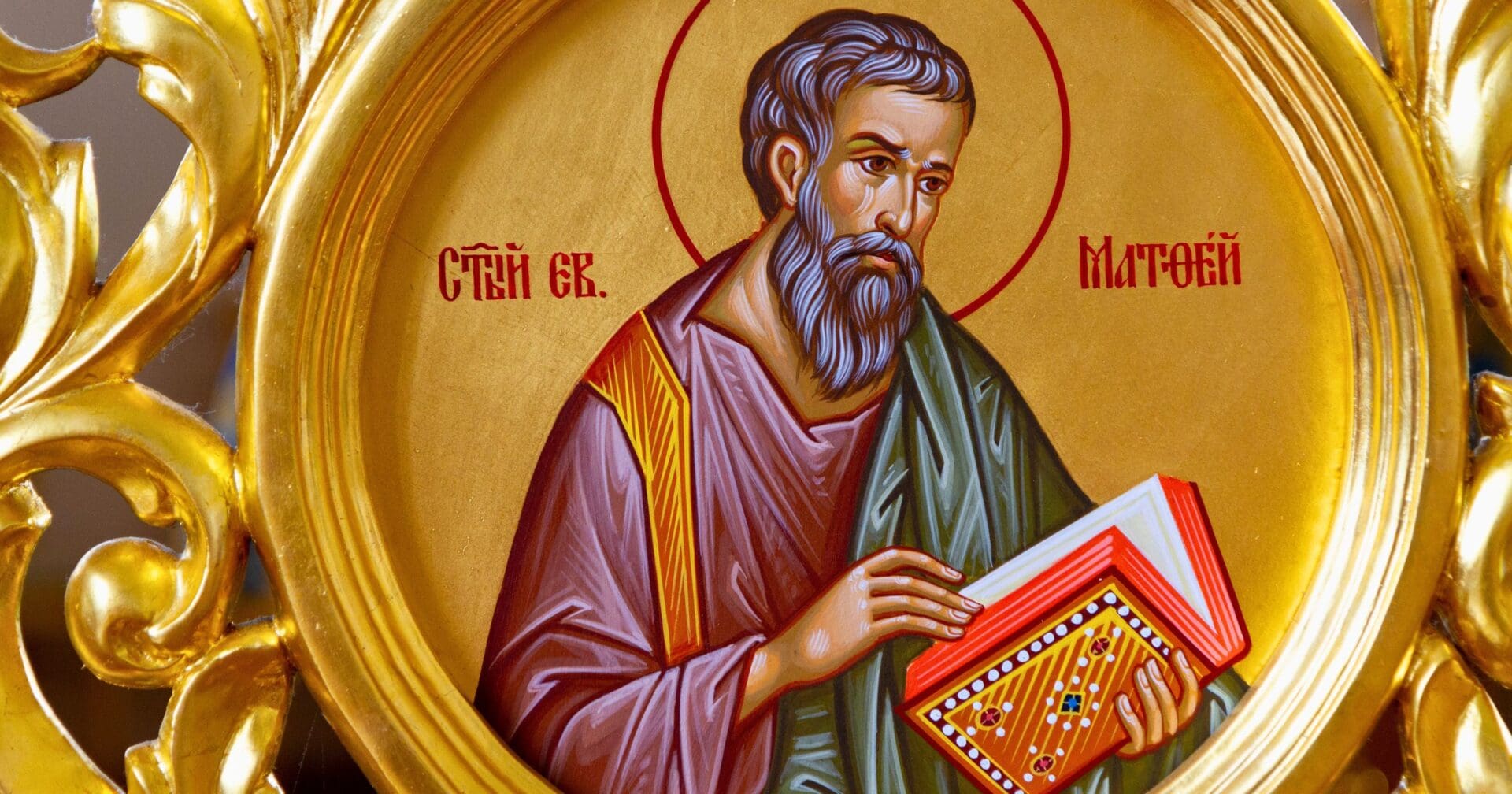Saint Matthew, one of the twelve Apostles, penned the first Gospel, a fact consistently upheld by Church tradition and substantiated by the Gospel’s content.
Matthew, the son of Alpheus, was a tax collector in Capernaum when Jesus called him to discipleship. Prior to this life-changing event, he was known as a publican, which meant he was professionally involved in tax collection. Interestingly, he is also recognized as “Levi” in the accounts of Mark and Luke.
Initially, Matthew’s evangelistic endeavors were concentrated within the confines of Palestinian communities. His later years remain shrouded in mystery. There are tales that suggest he might have preached in Ethiopia, while other stories hint at his work in Parthia or Persia. It remains debatable whether he passed away naturally or was martyred for his faith.
Matthew’s Gospel emerged from a palpable need among his Palestinian peers, addressing both believers and skeptics. For the faithful, it was a gesture of solidarity and a source of fortitude against impending adversities, particularly the temptation to revert to Judaism. For the skeptics, it was a testament to the arrival of the Messiah in the form of Jesus, signifying the spiritual realization of the Messianic Kingdom that transcends earthly realms, as Jesus said, “My Kingdom is not of this world.” This Gospel became a response to the query posed by St. John the Baptist’s followers: “Are You the One who is to come, or should we await another?”
Targeting a Palestinian audience, Matthew initially wrote his Gospel in Aramaic, referred to as the “Hebrew tongue” in both the Gospel and Acts of the Apostles. He is believed to have ventured to foreign lands around the time of Herod Agrippa I’s persecution in 42 AD. Some believe he penned his Gospel between 42 AD and the Council of Jerusalem in 50 AD, or perhaps even later. However, the depiction of an undestroyed Jerusalem in his Gospel, without hinting at the city’s prophesized downfall, suggests it was written before the Romans decimated it in 70 AD. This inference aligns with early traditions.
Editorial credit: Adam Jan Figel / Shutterstock.com

















I’am shocked. The Gospel of St.Matthew was written about 75-85 A.D. after the destruction of the Temple in Jerusalem. It was witten for the Jewish people. We still do not know if it was the original Matthew or not. Could someone please explain?
The debate goes on today when Matthew was actually written. Citing newadvent.org:
“In our day opinion is rather divided. Catholic critics, in general, favour the years 40-45, although some (e.g. Patrizi) go back to 36-39 or (e.g. Aberle) to 37. Belser assigns 41-42; Conély, 40-50; Schafer, 50-51; Hug, Reuschl, Schanz, and Rose, 60-67.”
The article goes on to mention Protestant and Liberalistic scholars proposing dates from the whereabouts of 70 AD through 140 AD.
Your understanding that the gospel was written at after the destruction of the temple is, in a large part, the result of skeptical reading, as if Matthew couldn’t possibly be recording a true prophetic prediction by Jesus about coming destruction.
Based on tradition and other evidence, Matthew the Apostle is held to be the writer of Matthew.
Why do you write ‘Palestine’? The country was not called this until after 135AD. Judaea was the name at the time of St Matthew
Saint Mathew the Tax collector – Pray for us.
St. Matthew, pray for me.
St. Matthew’s Gospel is a treasure.
If Jesus can do that with a tax collecter, Imagine what he could do with me !
O Glorious St. Matthew
through the grace of God
Our Father you gave us the Holy Gospel,
which brings us joy and life.
Inspired by your example,
I ask for your assistance
in all my needs.
Help me to follow Christ
and remain faithful to His service.
Amen.
Thank You, O Lord, for giving us the Evangelist, St. Matthew.
St. Mathew the patron saint of workers. Pray for us.